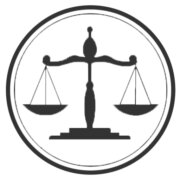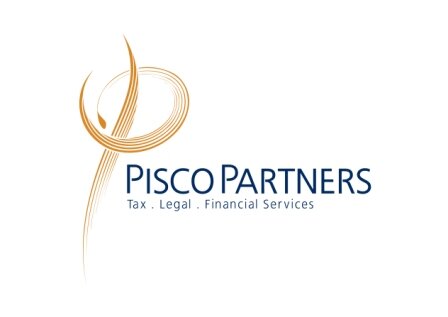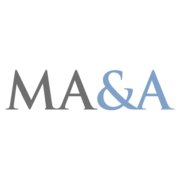Best Accounting & Auditing Lawyers in Ta' Xbiex
Share your needs with us, get contacted by law firms.
Free. Takes 2 min.
List of the best lawyers in Ta' Xbiex, Malta
About Accounting & Auditing Law in Ta' Xbiex, Malta
Ta' Xbiex, a picturesque town in Malta, is not only known for its scenic harbor views but also for being a hub for professional services, including accounting and auditing. Accounting & Auditing Law in Ta' Xbiex, like the rest of Malta, operates within the frameworks governed by both local and EU regulations. This legal area ensures that accountants and auditors comply with statutory requirements, providing transparency and accountability in financial reporting. Businesses in Ta' Xbiex often seek experts in this domain to ensure their financial practices meet both ethically and legally required standards.
Why You May Need a Lawyer
There are various reasons why individuals or businesses might seek legal advice in accounting and auditing in Ta' Xbiex:
- Regulatory Compliance: Ensuring that your business meets all the local and international accounting standards and regulations.
- Financial Disputes: Resolving disputes related to accounting audits, fraudulent financial reporting, and other discrepancies.
- Taxation Issues: Assistance in dealing with complex tax laws to optimize tax liabilities legally.
- Audit Requirements: Guidance on fulfilling statutory audit requirements as per the prevailing regulations in Malta.
- Business Structuring: Advising on legal implications of various business structures from a financial compliance perspective.
Local Laws Overview
The Maltese financial regulation landscape is underpinned by several important local laws relevant to accounting and auditing, including:
- The Accountancy Profession Act: Governs the practice standards and rules for accountants in Malta.
- The Companies Act: Regulates the incorporation and compliance requirements of companies, including audit obligations.
- Income Tax Management Act: Manages tax liabilities and compliance for businesses.
- Compliance with International Standards: Ensures Maltese accounting practices align with International Financial Reporting Standards (IFRS).
Frequently Asked Questions
1. What qualifications should an accountant have in Ta' Xbiex, Malta?
An accountant should be a certified public accountant holding a warrant issued by the Accountancy Board of Malta.
2. Are audits mandatory for all businesses?
In Malta, businesses above a certain turnover threshold are required to undergo an audit as part of their statutory requirements.
3. What are the penalties for non-compliance with accounting regulations?
Penalties for non-compliance can range from fines to criminal charges, depending on the severity of the breach.
4. How do changes in EU regulations affect local accounting practices?
Malta, being an EU member, must align its local laws with any changes in EU accounting and auditing regulations.
5. Can a general practice lawyer handle accounting and auditing issues?
A specialized lawyer with expertise in accounting and auditing is recommended for complex financial compliance issues.
6. What is the role of an auditor?
An auditor examines financial statements to ensure accuracy and compliance with accounting standards.
7. How often should a business conduct an internal audit?
The frequency of internal audits depends on the business size and industry, but annually is standard for most companies.
8. What are IFRS, and why are they important?
International Financial Reporting Standards (IFRS) are crucial for transparent and comparable financial reporting globally.
9. How can a company improve its financial compliance?
Regular training, hiring qualified professionals, and employing robust accounting software can enhance compliance.
10. What is the difference between financial accounting and auditing?
Financial accounting involves preparing financial statements, while auditing is the evaluation of those statements for accuracy.
Additional Resources
For more information or assistance, consider reaching out to the following entities:
- The Malta Institute of Accountants: Provides resources and guidance on professional accounting standards.
- The Accountancy Board of Malta: Regulatory authority for accountancy professionals.
- Malta Financial Services Authority (MFSA): Offers compliance guidelines and updates on financial regulations.
Next Steps
If you require legal assistance, consider the following steps:
- Consult a Specialist: Speak to a lawyer specializing in accounting and auditing law to understand your requirements.
- Gather Documentation: Prepare relevant documents such as financial statements, audit reports, and any notices from regulatory bodies.
- Schedule Meetings: Arrange consultations with legal professionals to discuss your case in detail.
- Engage a Lawyer: After finding a suitable lawyer, engage their services to assist with your accounting and auditing needs.
Lawzana helps you find the best lawyers and law firms in Ta' Xbiex through a curated and pre-screened list of qualified legal professionals. Our platform offers rankings and detailed profiles of attorneys and law firms, allowing you to compare based on practice areas, including Accounting & Auditing, experience, and client feedback.
Each profile includes a description of the firm's areas of practice, client reviews, team members and partners, year of establishment, spoken languages, office locations, contact information, social media presence, and any published articles or resources. Most firms on our platform speak English and are experienced in both local and international legal matters.
Get a quote from top-rated law firms in Ta' Xbiex, Malta — quickly, securely, and without unnecessary hassle.
Disclaimer:
The information provided on this page is for general informational purposes only and does not constitute legal advice. While we strive to ensure the accuracy and relevance of the content, legal information may change over time, and interpretations of the law can vary. You should always consult with a qualified legal professional for advice specific to your situation.
We disclaim all liability for actions taken or not taken based on the content of this page. If you believe any information is incorrect or outdated, please contact us, and we will review and update it where appropriate.










